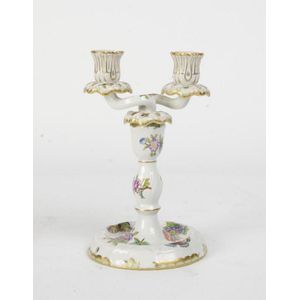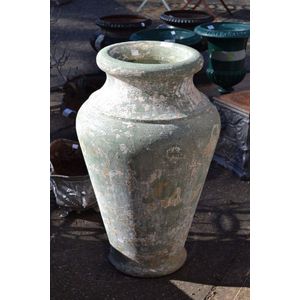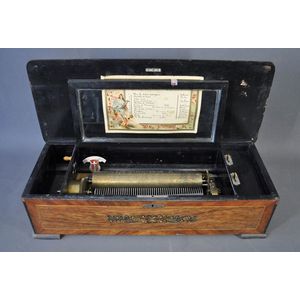Walnut Marquetry Loo Table with Bird and Urn Inlay
Edwardian walnut Loo table with marquetry inlay depicting birds and urns, 133 cm x 102 cm, 74 cm high
You must be a subscriber, and be logged in to view price and dealer details.
Subscribe Now to view actual auction price for this item
When you subscribe, you have the option of setting the currency in which to display prices to $Au, $US, $NZ or Stg.
This item has been sold, and the description, image and price are for reference purposes only.
- Parquetry - Parquetry is inlay laid in geometric patterns, the contrast being achieved by the opposing angles of the grain and veneers. The herringbone pattern is the most commonly used in flooring, but this is almost never seen in furniture - the patterns used are more complex and unlike flooring, can include several different varieties of timber.
- Inlay - Decorative patterns inserted into the main body of a piece of furniture, generally in wood of contrasting colour and grain, though brass, ivory, ebony, shell and sometimes horn have been used. Inlay may consist of a panel of well figured timber inset into a cabinet door front, geometric patterns, or complex and stylized designs of flowers, swags of foliage, fruits and other motifs. As a general rule, in pieces where the carcase is constructed in the solid, the inlay is relatively simple such as stringing, cross banding and herringbone banding. Where more elaborate and decorative work was required veneer was used. Inlay has been fashionable from at least the latter half of the 17th century, when a variety of elaborate forms were developed
- Edwardian - The Edwardian period of English furniture and decorative arts design is named for Edward VII (1841 ? 1910) who was King of the United Kingdom and the British Dominions and Emperor of India for the brief period from 1901 until his death in 1910. It follows the Victorian period, in turn was followed by the Art Nouveau and Art Deco styles. In Australia, designs of this period are also known as being in the Federation style.
- Marquetry - In marquetry inlay, contrasting woods, and other materials such as ivory, shell and metal are inlaid either as panels or in a single continuous sheet over the surface of the piece. The design may be straightforward, such as a shell pattern or a basket of flowers, or it may be infinitely complex, with swirling tendrils of leaves, flowers and foliage, such as one finds, for example, in the "seaweed" patterns on longcase clocks of the William and Mary and Queen Anne periods.
This item has been included into following indexes:
Visually similar items

A handbag by Fendi, styled in aubergine leather with buckle detail and oxidized brass metal hardware, 45 x 30 cm.
Sold by
in
for
You can display prices in $Au, $US, $NZ or Stg.

A Herrend porcelain candelabra. 23 cm high
Sold by
in
for
You can display prices in $Au, $US, $NZ or Stg.

Large Baluster form garden urn, distressed painted finish, 70 cm high, 40 cm diameter
Sold by
in
for
You can display prices in $Au, $US, $NZ or Stg.

Swiss music box. Walnut veneer case with 12 airs movement. Tune indicator. Working order, requires restoration. Height 15 cm. Width 59 cm. Diameter 24 cm
Sold by
in
for
You can display prices in $Au, $US, $NZ or Stg.
